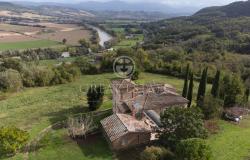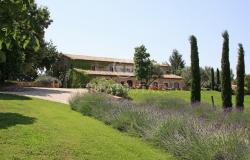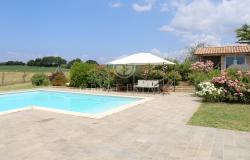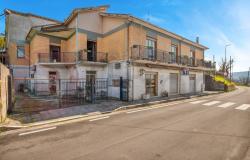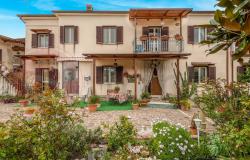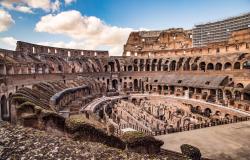 Italian artist obsessed with nature's raw materials - Rome is paying tribute to one of the brightest lights of Italy's conceptual art scene, with an exhibition showcasing works by Giuseppe Penone.
Italian artist obsessed with nature's raw materials - Rome is paying tribute to one of the brightest lights of Italy's conceptual art scene, with an exhibition showcasing works by Giuseppe Penone.
The Villa Medici complex will host a number of major pieces from Penone's 40-year-career, exploring his fascination with nature and its raw materials.
Wood, vegetable resin and graphite are all used alongside more traditional elements, such as marble and bronze. Rather than creating a chronological route, the curators have frequently brought together several smaller pieces to convey the sense of a single, larger work. The exhibition starts with one of Penone's most recent and technically challenging pieces: a large-scale installation comprising 20 bronze casts taken from the trunk of two massive cedar trees. Penone acquired the logs after a 1999 storm uprooted dozens of ancient trees from the gardens of the Versailles Palace in France. Records show that both ancient trees were planted in 1800, flourishing in the time of Napoleon Bonaparte.
The trees gave rise to a number of works, explained one of the exhibit's curators, Daniela Lancioni. ''But the piece at Villa Medici is a cast of the trunk made from 24 sheets of bronze''.
Another section of the show brings together, for the first time, an entire series of bronze sculptures Penone has been working on since 2000, depicting the delicate veining of a plant's transport system. Other works in the show display a similar fascination with the intricacies of nature, particularly trees and plants.
'Ideas Of Stone' is a 13-metre-high bronze tree, designed especially for this exhibit, while a slab of Carrara marble has been carved with a network of channels resembling the nervous system of humans. The exhibit features works on loan from private collections, the Museum of Contemporary Art in Rivoli Castle, outside Turin, as well as several pieces Penone has created for the event. Born in 1947 in the village of Garessio near the French border, Penone played a key role in Italy's Arte Povera movement. He created his earliest works in 1968 in the forest outside his hometown, altering trees with nails and metal wire. His fascination with trees and nature remained constant during his career although during the 1970s he shifted his focus to the human body, projecting images drawn from the surface of his skin on to plaster casts of his face. Along with Francesco Vezzoli, his work was chosen to inaugurate the Italian pavilion at last year's Venice Biennial, and his sculptures adorn the gardens of the newly reopened Venaria palace complex in Turin. Entitled simply 'Giuseppe Penone', the exhibition runs in the French Academy and grounds of Villa Medici from January 30 until March 25.

